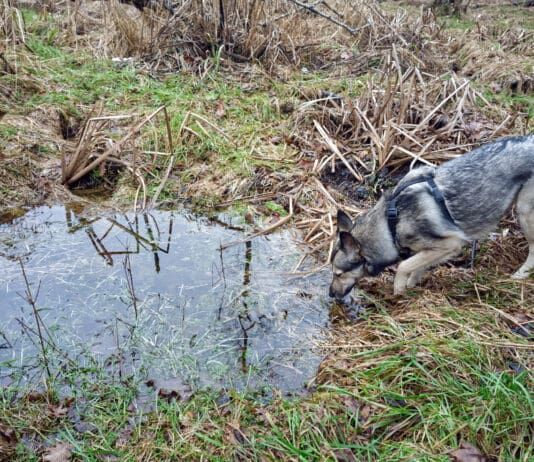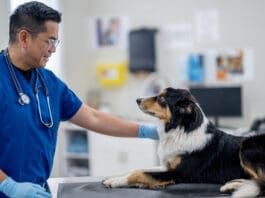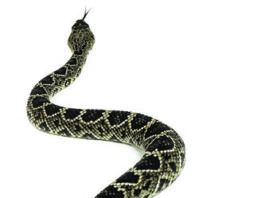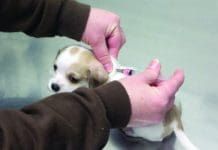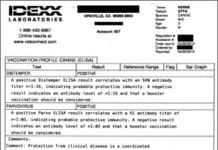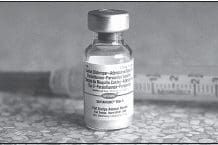Canine Parvovirus Vaccine, Symptoms, and Treatment
How is parvo spread among dogs? Whole Dog Journal discusses a number of canine parvovirus prevention and treatment approaches taken by veterinarians and dog guardians today. Reactions to parvovirus vary widely. In a world where parvovirus is literally everywhere, parvo kills some dogs and leaves others unscathed. And in the debate about parvo vaccination, some people vaccinate their dogs early and often, while others refuse to vaccinate against parvo at all.
Puppy Vaccines: Why Your Puppy Needs So Many Shots
Puppy vaccine schedules can be daunting to new dog owners. Why do puppies need so many shots? Are all those puppy vaccinations really necessary? Most veterinarians recommend that puppies are vaccinated for distemper, parvovirus, and adenovirus (hepatitis) a number of times, starting when they are about four to six weeks old, and again every three or four weeks, with their last puppy vaccination" given after they are about 16 to 20 weeks old. "
The Deal with Puppy Shots
You might be surprised to know that dogs don't actually need a series" of shots in order to be immunized against canine diseases. That said
Vaccine Titer Tests for Dogs
or if your adult dog really needs any more core vaccines.
Bad News for Dog Owners Looking for Single-Antigen Vaccines
I have always run titers on my dogs before vaccinating and my vet provided individual doses when required. This year was different. The office manager called and said their practice could no longer provide individual vaccines, as in the past. I vaccinate only for parvo, distemper when titers are low, and rabies. I was quite upset because one of my dogs needed only distemper and my other dog’s titers were good. I posed the question, “Why offer titers, if you are not able to provide individual vaccines? Big silence! Well, I know the answer.
Beware of Over-Vaccinating Your Dog
In Whole Dog Journal's opinion, annual vaccination for most canine diseases is unnecessary and potentially harmful. Dog owners should avoid employing those old-fashioned veterinarians who recommend annual vaccines. Owners should also avoid those veterinary service providers who provide inexpensive vaccines and other routine care without the benefit of a relationship with you and your dog beyond a brief transaction in a parking lot or pet supply store.
Dog Vaccination Information
Vaccines are something that every dog owner should be educated about, and yet few seem to think about them at all, except to wonder about the need for them after they get a new dog. However, many people base this concern on the vet bill, rather than worries about the potential for side effects in their dogs! Immunology expert Ronald Schultz, PhD, Diplomate ACVIM (American College of Veterinary Internal Medicine), has spent much of his career studying animal vaccines. Dr. Schultz is professor and chair of the Department of Pathobiological Sciences at the University of Wisconsin-Madison School of Veterinary Medicine, and has more than 40 years' experience in the field of immunology. His long-time university employment - as opposed to a career in industry - has provided him with a unique position of neutrality from which to observe the vaccine industry.
Shots Fired: Professional veterinary associations call for a reduced canine vaccination protocol
In the past decade, the veterinary profession’s overall attitude toward vaccination has evolved to a point that can be tentatively termed progressive. In 2002, the American Veterinary Medical Association issued a policy statement that urged veterinarians to “customize” vaccine protocols for individual patients, since there is “inadequate data to scientifically determine a single best protocol” for initial or repeat vaccinations. A year later, the prestigious American Animal Hospital Association (AAHA) released its landmark canine vaccination guidelines, which were updated in 2006.
Vaccination and Canine Distemper Virus (CDV)
When we decided not to vaccinate Caleb, our Bouvier des Flandres, against anything other than rabies, my friend Janice and I knew we ran a risk that he might develop a dreaded disease. We also knew that vaccination doesn't always protect against disease, and believed it sometimes causes illness. We felt the home-prepared BARF (bones and raw foods) diet we fed him would help his body fight off many health problems. Naturally, we hoped that Caleb would never come down with anything serious like canine distemper virus (CDV). But, when he was three years old, we had to face and overcome exactly that challenge.
Take the Titer Test before Administering Vaccinations
Now more than ever, vaccine titer tests are readily available, not terribly expensive, and offer multiple advantages over the practices (intentional or not) of over-vaccination and under-vaccination. Few issues in veterinary medicine are as controversial as the debate about administering annual vaccinations to our dogs. Long considered part of the standard of baseline, responsible veterinary healthcare, and credited with conquering some of the fiercest canine viral and other infectious diseases, vaccinations now are also suspected of creating vulnerability to illnesses and chronic conditions such as anemia, arthritis, seizures, allergies, gastrointestinal and thyroid disorders, and cancer.
Reduced Vaccination Schedule
An annual booster using distemper, hepatitis, parainfluenza, killed or modified-live virus parvovirus is given at one year of age. Thereafter, boosters are given every three years until old age. Beyond 10 years of age, booster vaccinations are generally not needed, and may be unwise if aging or other diseases are present. For animals at high exposure risk to parvovirus disease, an additional parvovirus vaccination can be given at the six-month point, if killed parvovirus is used. This extra booster is typically not needed if MLV parvovirus is used.
Defining Over-Vaccination
Let’s be clear: In most cases, vaccines are miraculous, life-saving agents. The diseases they (usually) prevent in our dogs range from always fatal (such as rabies) to serious and sometimes fatal (such as distemper, parvovirus, leptospirosis) to the rarely fatal (such as bordetella and coronavirus). And even diseases that are not fatal can cause all sorts of grief for both the dog in question and his owner (and the owner’s pocketbook). Dog lovers the world over are eternally grateful for the gifts that modern vaccines have conferred upon our canine companions.


